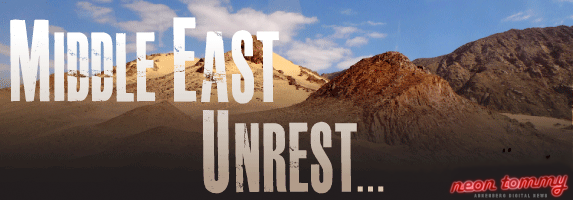Jordan: People Protesting For Reform, Not Upheaval
With Egypt and Libya taking much of the media attention with their own revolutions, the people of Jordan continued protesting for government reform Tuesday, despite seeking changes on a smaller scale.
Ahead of the Islamic Action Front’s “day of anger” scheduled for Friday, the cabinet amended protest laws making it easier to mobilize. The IAF and its parent group, the Muslim Brotherhood, have vowed to return to the streets in protest unsatisfied with the timeliness of proposed reform.
King Abdullah II has been in power since 1999, following his father Hussein’s nearly 47-year reign, at the beginning of which most of the region’s monarchies were toppled. Although a constitution was enacted in 1952, amendments that gave the king sole power to dissolve parliament and appoint cabinet members were imposed after the Six-Day War in 1967, resulting in a return to martial law.
A wide collection of activists, including Islamists, liberals and conservatives, have all banded together for a return to the original constitution. They want the power to appoint the prime minister to be placed solely in the hands of the voters.

Abdullah has certainly heard the voices of the protestors in recent weeks, even going as far as sacking his entire cabinet and replacing Samir Al Rifai with Maarouf Al Bakhit as prime minister. While protestors were demanding Rifai’s resignation, the changes are of little consolation overall without comprehensive political reform.
The king promised reform Sunday in the wake of the protests, but claimed his own attempts have been derailed.
"When I say reform. I want real and quick reforms,” he said. “Many officials wasted opportunities because of the reluctance to move forward and fear of change. I will not allow that to happen again."
Abdullah has turned over the cabinet and announced reform before, however neither has ever provided a long-term impact.
Laurie Brand, a professor and director of the School of International Relations at the University of Southern California, believes Abdullah’s calls of reform ring hollow.
“We’ve heard [Abdullah’s calls of reform] off and on before,” she said. “There are clearly a few more pressures in place given what’s happened with every one else. I haven’t seen any indications of what he has in mind. There’s been some discussion perhaps looking at electoral law but the basic problem is that you have a monarch that can’t truly be held accountable.”
As for Jordan’s place in the Middle East, its treaty with Israel and extensive relations with the West make its policies of U.S. concern. Jordan has traditionally backed American foreign initiatives and the U.S. has returned favor by providing a major source of funds.
In a joint press conference with the Jordanian Foreign Minister Nasser Judeh last month, U.S. Secretary of State Hillary Rodham Clinton said she “valued Jordan’s guidance” in the Middle East.
“The United States has had a long, close relationship with Jordan for many decades,” she said. “Jordan has developed important relationships with many critical countries and has built a unique and respected position as a peace broker among diverse parties.”
However, the Obama administration will most likely have to tread carefully in light of political unrest across the Middle East.
“The U.S. is trying to walk a tight rope with these various leaders,” Brand said. “They have the oil interest there. These other governments are largely allies of the U.S. and the U.S. has an interest of in them remaining in place.”
As for the likelihood of a true constitutional monarchy - one where the people are allowed to elect their leaders - succeeding in Jordan, Brand said it’s possible but there will be a struggle between interests.
“There’s a long path to go between where they are now and what a constitutional monarchy should be,” she said. “There are interests that would not be given up so easily, but there’s no reason in theory why [a constitutional monarchy would not succeed in Jordan.]”
In the meantime, the government still has to contend with its worst economic crisis in years along with angry protestors. Unemployment sits at 11.90 percent and 26 percent among young people.
“A lot of these forces at work are not from the presiding government,” Brand said. “What they can control is how they deal with it. The government needs to engage in policies that create more jobs because they have graduates coming out of college without work.”
As one of the Middle East’s smallest economies, Jordan has much fewer natural resources and must instead rely on exports from mining and manufacturing. The global economic slump hit these areas the hardest and in turn, slowed any growth to the country’s GDP.
Although outright revolution is highly unlikely because of Abdullah's stable popularity, the IAF and other activists are getting restless with the empty promises of political reform from the government.
With broad democratic powers still firmly in his grasp, only the king can truly return those powers to the people.
To reach reporter Susan Shimotsu, click here.
Follow her on Twitter: @susanfromtx.




